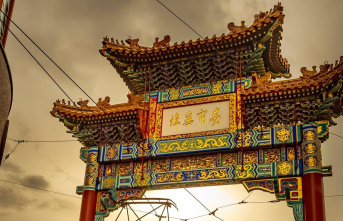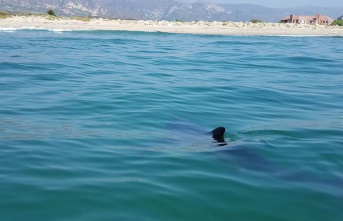Since it broke out, almost a month ago, the espionage scandal against the Catalan independence movement has been growing like a snowball, greatly hindering the day-to-day running of the government that makes up PSOE and UP. And no wonder. Because although it is understandable that governments seek all the necessary information to defend themselves and avoid surprises, it is not understandable that they do so following irregular procedures or, of course, that everything ends up coming to light. When the latter happens, it becomes very difficult to find a satisfactory way out of the crisis.
The Government's first reaction to this scandal was to try to minimize it and evade responsibility. That was an early proof of the seriousness of the case, which has produced, in addition to the indignation of the independence movement that had facilitated the investiture of Pedro Sánchez, an unusual confrontation between the Ministries of Defense and the Presidency. This week, the Government is confident that it has resolved the crisis with the replacement of Paz Esteban at the head of the CNI by Esperanza Casteleiro, another veteran official of this organization. But the independentistas do not share such an opinion, they consider that the head collected is not enough and they demand new compensations. All this, at a time when there are still too many unknowns to clear up, on both sides. For example, what was the real involvement of each investigated in each of the events spied on. Or what is the seriousness and criminal scope of what was found out by the CNI in its investigation of the independentistas.
Today, La Vanguardia publishes new information regarding this case, specifying the list of the 18 Catalan separatists under surveillance, and also specifying the arguments provided by the CNI to the Supreme Court magistrates who had to give their authorization for the wiretapping. It is not surprising, in this sense, that it was pointed out that Catalan secessionism posed a threat to the unity of the State, protected by the Constitution, since its objective was and is to separate Catalonia from Spain. It is surprising, however, that jihadism is compared to independence. The ultimate goals and strategies of both movements have never been the same. It is also surprising that the judicial authorization to spy on Pere Aragonès, today president of the Generalitat, then vice president, was based on the role that the CNI gave him as "coordinator" of the CDR. Or that the wiretaps made in the fall of 2019, when Catalonia was boiling over the sentence of the procés trial, continued in 2020, on the eve of the presidential investiture of Pedro Sánchez, which had the support of ERC.
Espionage – the secret search for information – is an activity practiced by all governments, not just governments. Those who carry it out usually hide behind the high interests of their cause. Those who suffer reproach them for intruding on their privacy, aggravated, on this occasion, by the feeling of betrayal, since relations between the two parties were sometimes in conflict, but sometimes defined by the desire for dialogue. It is therefore difficult for these parties to value it in a similar way.
Another thing is the meager fruits that this ill-fated case offers to society as a whole. John le Carré wrote in The Spy Who Came in from the Cold that espionage has only one moral law: it is justified by results. Having seen what has been seen, the governing bodies of the State should ask themselves if there was such a justification. And the independence movement must ask itself if the results that it is going to obtain from its castling are the ones that best suit it.
4












